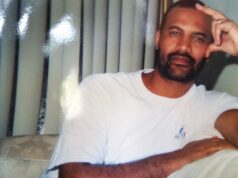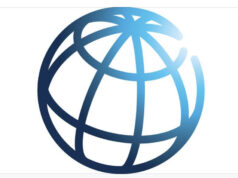Sooner or later the “Abiy Mania” that continues to grip Ethiopia will begin to fade as Ethiopia faces the intractable and hard socioeconomic reality on the ground that triggered the popular revolt. The systemic, policy, structural and institutional problems that tens of millions of Ethiopians, especially youth face daily, remain intact.
Ethiopian youth that defied the single party state and government machinery expects to win dividends from the enormous sacrifices tens of thousands made. The bread and butter issues of improved life and livelihood through employment and empowerment at home rather than abroad are real and just. The demand must be met sooner rather than later. I am not suggesting a “Marshall Plan” for Ethiopia. We should no longer rely on aid to save Ethiopia. I am suggesting a people-centered and anchored development model in place of the elite led “Revolutionary Democracy” and the elite led “developmental state” that is much more akin to trickledown economics. An empowered youth can do miracles for the country.
It is true that Ethiopia’s energetic, popular and charismatic Prime Minister has done the unthinkable. He has opened-up Ethiopia’s suffocating and debilitating political, civic and spiritual space for the first time since the popular revolution of 1974. The generation born since then must be reminded that at the time hundreds of patriots, intellectuals, political critics and opposition groups moved back to Ethiopia in droves. The anticipation then as it is now was the establishment of a just and democratic form of government that will modernize Ethiopia fast.
Sadly, the opportunity to establish such a system that will deal with the root causes of poverty and backwardness were dashed.
Forty four years later, the anticipation is high that, this time, Ethiopian society won’t and can’t afford to repeat the same mistake over and over again. I appreciate the insatiable appetite among youth and the rest in celebrating the new found breath of fresh air expressed in the streets and stadiums by welcoming those unjustly accused of crimes they never committed and those forced into exile by an indescribable one party state and government that is still largely intact. This celebration would not have been possible without Prime Minister Dr. Abiy.
Regardless of ethnic or religious or party or class affiliation, we Ethiopians agree on the primacy of a democratic form of governance in place of the one party state and government that has dominated the lives of Ethiopians for at least half a century. But, to my knowledge, we have not yet agreed on the process of how we get there. This is really where our focus should be in the coming year.
I too accept the foundational and aspirational principle of democracy, and in particular the fundamental principle of respecting and preserving the rights of each and every individual enshrined or articulated in the 1948 United Nations Universal Declaration of Human Rights.
This eternal principle declares that “Everyone has the right to take part in the government of his country directly or through freely chosen representatives.”
I find no single country or regime on this planet that rejects this universality. In fact, the regime that governed Ethiopia for the past three decades has argued adamantly that it too shared these principles. Yet, it defied and denied such bodies as the UN High Commissioner for Human Rights from sending Special Rapporteurs to investigate crimes against humanity and ethnic cleansing. This should be done.
To his credit, Prime Minister Dr. Abiy opened-up Ethiopia’s suffocating and debilitating political, civic and spiritual space and encouraged each and every one within and outside the country to breathe an air of freedom for the first time in decades. This is the reason why Ethiopia is engulfed with a level of unprecedented enthusiasm, hope and aspiration that would have been unthinkable at the start of the Ethiopian New Year last time. At the time, those of us who lived in free countries debated Ethiopia’s prospect to survive.
The accolades should, however, not mask the reality that Ethiopia is still a single party state and government. Under this system, there are no checks and balances. The party, government and state operate as a seamless entity reinforcing one another. This is why the rule of law does not apply under this system. The EPRDF that Prime Minister Dr. Abiy leads commands 7 million members, many of them dependent on the party for their livelihood and influence. The party is therefore the issue.
For the following institutional recommendations to materialize, Prime Minister Dr. Abiy’s EPRDF must, among other reforms, annul the Charities and Societies Act, at minimum, reform it radically. This law restricts civil society and is a therefore a barrier to democracy. Equally, the Anti-Terrorism Proclamation should be changed in such a manner that it does not restrict fundamental rights and freedoms.
As we enter and welcome the New Ethiopia Year of 2011, I still wonder where Ethiopia is heading. I propose that Ethiopia’s New Year should be a year of National Institution Building such as the reconstitution from the ground up of a truly independent, non-partisan, capable and modern National Defense and National Security staffed by a competent and representative cadre of Ethiopians based on merit rather than ethnic or party affiliation.
It should be a year dedicated to the establishment of an independent and non-partisan election Board, judiciary and other critical institutions. It should be a year dedicated to the establishment of a free, independent and competitive press, civil society and a diverse group of professional societies.
It should be a year of disallowing political parties from owning businesses or bidding for contracts. The Ethiopian private sector should be encouraged and empowered to thrive.
The Year 2011 should also be a year that addresses and deals with the perennial issue of chronic youth unemployment and underemployment, deficit and debt reduction, the tackling of hyperinflation and food insecurity; and the eradication and criminalization of institutional and private graft, theft and corruption. It should be a year of restructuring the federal budget allocation so that there is no longer skewed distribution of scarred resources, including foreign
aid on the basis of ethnic or party affiliation.
The internal and external environment is much more favorable for institutional reform and for tackling the systemic, structural and policy causes that brought Ethiopia to the brink of collapse and civil war. Ethiopia should take advantage of this window of opportunity to jump start a socioeconomic transformation that is truly fair, just, equitable and sustainable.
The biggest hurdles is political. I conclude that the one party state and government alone cannot resolve these and other structural and policy issues regardless of a charismatic leader, who, for the first time in decades, has placed Ethiopia and Ethiopiawinet (ኢትዮጵያዊነት) central to the political discourse.
I suggest that in order to deal with the root causes of poverty and unemployment, Ethiopia’s development model must be anchored on the wellbeing of the country’s 110 million people. Perhaps, it is time for civil and political society to begin discussing the pros and cons of social democracy in place of the elite based model of “Revolutionary Democracy” and the equally elite model of “the developmental state.”
The bread and butter issues of real life for the tens of millions of real people who aspire a better tomorrow deserve our collective resolve and attention.
























